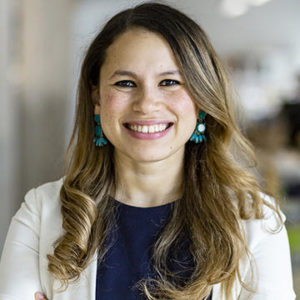Virtual Seminars are engaging and interactive learning opportunities for small groups of mayors and their senior staff. Each one-hour seminar features a deep-dive presentation on a single timely topic, followed by a moderated group discussion among the attendees.
Virtual Seminar: Beyond Traditional Engagement and Design Guidelines: Boston Design Vision
In this seminar, the team behind the Boston Design Vision shared some of the creative engagement tactics bolstering their effort to make buildings and outdoor spaces better support Bostonians’ sense of belonging and identity, and how this vision will be applied moving forward.
Traditional urban design standards and guidelines often fail to capture the rich tapestry of spaces that make up loved and stewarded neighborhoods. In addition, they are often seen as impediments to development, and if not done carefully, can result in homogenous new development. Through the Design Vision, the City of Boston has strived to capture the essence of what makes Boston unique; what makes spaces welcoming, comfortable, and usable; and how development can support movement and help build community. Through innovative community engagement, the city has worked to embrace residents’ rich knowledge about their communities and shape that into a lasting, flexible, and adaptive vision.
Watch the presentations (37:13):
Key Takeaways
To achieve better design in your city, start with a deep examination of what residents love most about their neighborhoods. With a well-informed understanding of what residents consider “good design,” find opportunities to rethink city processes to make sure new development, infrastructure upgrades, and everything in between aligns with residents’ goals for their community.
- Try creative approaches to community engagement like forming a well-balanced community advisory group, holding topical roundtables on different aspects of the work, holding pop-up events in areas facing significant change, and hiring a photographer to capture the essence of what residents love.
- Boston created a Neighborhood Character Analysis tool to help the team understand and define the unique context, lived experiences, and values of each neighborhood’s residents.
- A deep analysis of existing city processes, zoning, and design guidelines can identify ways that regulation is currently hindering desired design outcomes, as well as opportunities to codify the values explored during engagement and neighborhood character analysis.
- Mayoral support is key to empowering staff to rethink existing processes and try new approaches.
Guiding principles from the Boston Design Vision
The Boston Design Vision is a statement of principles to guide design decision-making at the City of Boston, the result of a year-long process identifying ways to bring quality design to everyone:
- Design from Understanding: “Understanding a place is more than just observing its physical characteristics. It requires connecting with the community to understand its unique context, the lived experiences of the community, and its values.”
- Design for the Future: “The things we build today and tomorrow should ensure Boston and our communities thrive long into the future. Green building designs… support people’s health and prepare our built environment for future climate challenges.”
- Design Beyond the Boundary: “Every project impacts and in turn, is impacted by the world around it. We “zoom out” to understand how a project contributes to its broader context. It is important that in any design solution, we understand how
sidewalks, open spaces, and streets are impacted.” - Design the Details: “Good design works to center culture and identity to inform design outcomes that anchor a sense of belonging. Design elements provide the greatest value to residents when they relate to their everyday experiences. Details such as color, pattern, texture, and materials should be used to respond to the culture of a place.”
Example: Boston City Hall Plaza
The Boston City Hall Plaza Renovation (completed 2022) embodied these guiding principles, reflecting the values and diversity of Boston’s built environment.
- “Design from Understanding: A flexible, civic plaza informed by diverse stakeholders and design principles that invite people to stay and enjoy the space
- Design for the Future: Green infrastructure systems handle over 60% of the plaza’s rainwater and reuses it for the 250 trees and thousands of shrubs and perennials
- Design Beyond the Boundary: The plaza renovation replaced numerous inaccessible steps with wide, universally accessible pathways for all to use.
- Design the Details: A new playscape in the plaza welcomes children to the plaza to play across an array of different play elements.”
Speakers

Diana Fernandez Bibeau
Deputy Chief of Urban Design
City of Boston Planning Department

Gina Ford
Principal, Landscape Architect and Co-Founder
Agency Landscape + Planning
Gina Ford is a landscape architect, co-founder and principal of Agency Landscape + Planning. Underpinning her two decades of practice are a commitment to the design and planning of public places and the perpetuation of the value of landscape architecture via thought leadership, teaching, writing and lecturing.
Her work has received awards from the American Society of Landscape Architects, the American Planning Association and the American Institute of Architects, among others. She is on the board of directors for the City Parks Alliance and the stewardship council of The Cultural Landscape Foundation. She received the Harvard Graduate School of Design’s Charles Eliot Traveling Fellowship, the Wellesley College’s Shaw Fellowship and the Boston Society of Architect’s Women in Design Award of Excellence.

